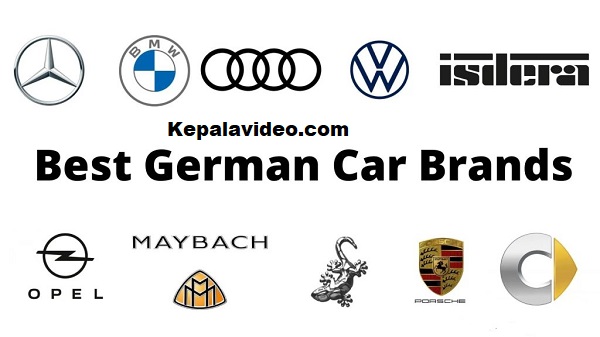Automotive Companies in Germany
Top Automotive Companies in Germany, When it comes to identifying the top automotive companies in Germany, various factors can be considered, including:

Market Share: Businesses hold the biggest share of the German and worldwide markets.
Revenue and Profitability: Businesses that bring in the most money and have a good profit margin.
Innovation & Technology: Businesses setting the standard for innovative automotive solutions and technologies.
Brand Prestige & Reputation: Businesses are valued for their prestige, quality, and brand image.
Employers that prioritize sustainable measures and cultivate a positive work environment are focusing on employee satisfaction and sustainability.
Based on these considerations, here are some of the top automotive companies in Germany:
Tier 1:
1. Volkswagen Group: A Global Powerhouse in Transition
The Volkswagen Group is a global automotive powerhouse with a bright future ahead of it, and its headquarters are in Wolfsburg, Germany. It features well-known brands like Bentley, Audi, Porsche, Skoda, and Volkswagen that cater to various automobile market sectors. In terms of global sales in 2016 and 2017, the group was the largest car manufacturer in the world, with a significant presence in China, Europe, and other key nations.
In response to this change, the group unveiled its “NEW AUTO – Mobility for Generations to Come” policy. The primary objective of this funding is to advance the development of electric vehicles and to introduce more than thirty fully electric models by 2025. Additionally, they are improving their battery and autonomous driving technologies. Though the Volkswagen Group’s commitment to innovation and flexibility suggests a bright future,
2. Mercedes-Benz Group: Navigating Luxury and Sustainability
The Mercedes-Benz Group, formerly Daimler AG, is a cornerstone of German luxury automotive engineering. With renowned brands like Mercedes-Benz, Mercedes-AMG, and Mercedes-Maybach, the company caters to global luxury car enthusiasts. With a long history that stretches back to 1886, Mercedes-Benz has established a reputation for performance, innovative technology, and sophisticated refinement. However, in recent years, the company has had to contend with shifting consumer expectations as well as the ongoing demand for sustainable solutions.
In response to the growing trend of environmental consciousness in the future, the Mercedes-Benz Group has committed to pursuing a comprehensive electrification plan. As part of their “Electric First” plan, they want all newly issued vehicles to be electric or electric-capable by 2030. This means making large financial investments in battery technology, charging infrastructure, and partnerships with key industry players.
3. BMW Group: From Bavarian Engines to Electric Excellence
The iconic blue-and-white propeller logo of the BMW Group has made it a dominant force in the premium car industry. The company was established in 1916 in Bavaria, Germany, and has since expanded from producing motorcycles to aircraft engines to—most notably—high-performance cars marketed under the BMW brand. They also own the luxurious Rolls-Royce and MINI brands, which fulfill a range of car desires. Prized for its driving dynamics, innovation, and style, BMW has a passionate following around the world.
Also Read: Student loans in the USA
However, the automotive industry is currently undergoing a significant shift towards the use of electric vehicles and eco-friendly practices. In light of this, the BMW Group has established strict guidelines for electrification. Its “Power of Choice” strategy aims to provide customers with options by offering fully electric automobiles in addition to plug-in hybrids and combustion engines. They are investing a lot of money in the development of electric vehicles to manufacture more than 5 million fully electric vehicles by 2030.
Tier 2:
1. Ford-Werke GmbH: A Branch with Deep Roots in Germany
The fact that Ford-Werke GmbH was established in 1925 is evidence of the American carmaker’s long history in Germany. It is one of Ford Motor Company’s most significant subsidiaries, contributing significantly to both European operations and global vehicle production, with its main office situated in Cologne. With more than 40,000 workers, Ford-Werke GmbH operates several manufacturing facilities across Germany and is the company behind popular cars including the Fiesta, Focus, and Kuga.
Like many automakers, Ford-Werke GmbH has to manage the switch to electric cars and other new mobility alternatives. To address this, the corporation implemented the “Ford+ Plan,” which places a strong emphasis on electrification, digitization, and the customer experience. This includes audacious promises to provide funding for the advancement of electric cars and to have a completely electric driving range in Europe by 2030.
2. Opel Automobile GmbH: A German Brand with a Storied Past and Uncertain Future
The Opel Automobile GmbH, situated in Rüsselsheim, Germany, has a rich and distinguished past that began in 1862. Formerly a major player in the European auto market, Opel was well-known for creating affordable, durable vehicles like the Astra and Kadett. The company faced financial troubles after decades of ownership under the General Motors family, and in 2017 the French automaker PSA (now Stellantis) eventually took it.
Despite its long history, Opel nevertheless has to navigate a difficult climate today. Despite having a passionate following in Germany and other European countries, the brand confronts intense competition from well-known names as well as the rapidly advancing electric vehicle trend. By making strategic investments in electrification, the company intends to rebuild its reputation, focusing on cars such as the Mokka-e and Corsa-e. Opel also hopes to boost efficiency and competitiveness by leveraging platform sharing and resources provided by Stellantis.
3. Porsche AG: Quintessential Performance, Embracing the Electric Future
Porsche AG, which is also known as Dr. Ing. h.c. F. It is the pinnacle of German car engineering and performance. The firm was formed by Ferdinand Porsche in 1931, and it gained notoriety for creating opulent and exhilarating sports cars like the 911. Porsche welcomes innovation to maintain its relevance despite its history. They currently have a large selection of cars, including SUVs and sedans, in addition to their classic sports cars. Remarkably, Porsche is investing heavily in electric mobility with the launch of well-liked vehicles like the Taycan, all the while maintaining its core identity of performance and driving enjoyment.


